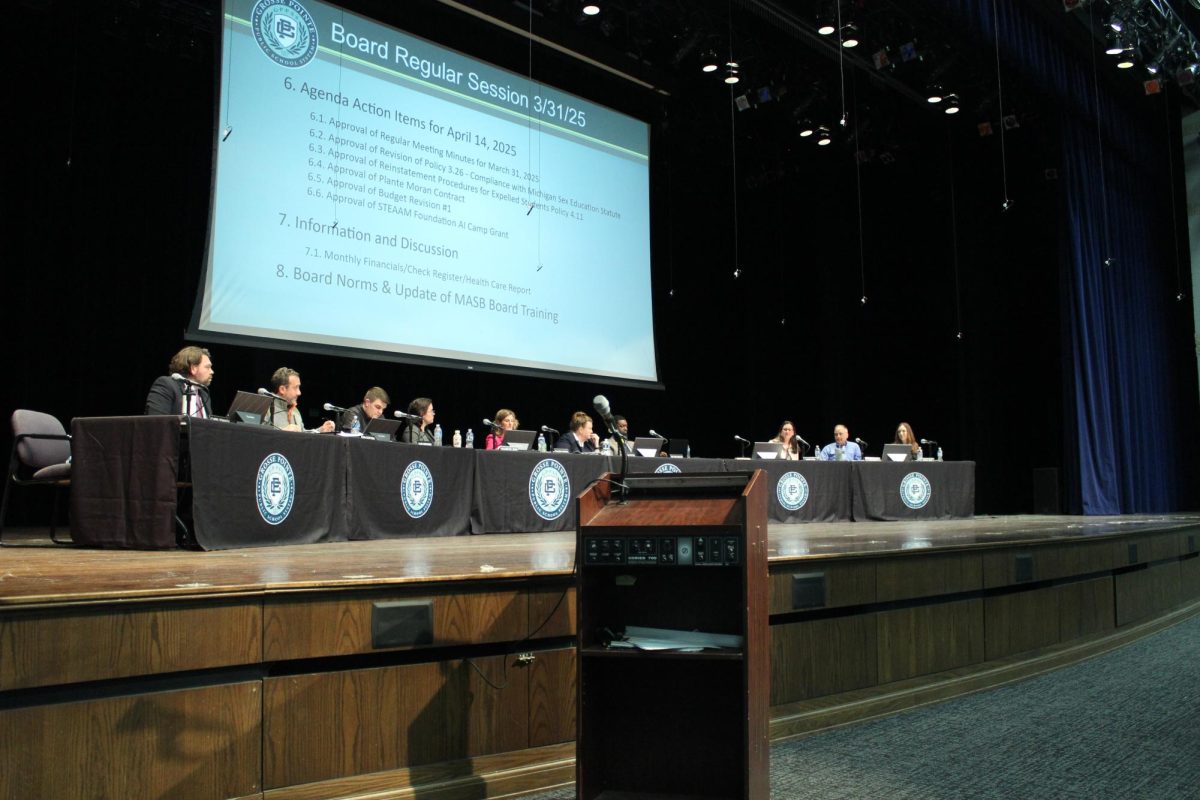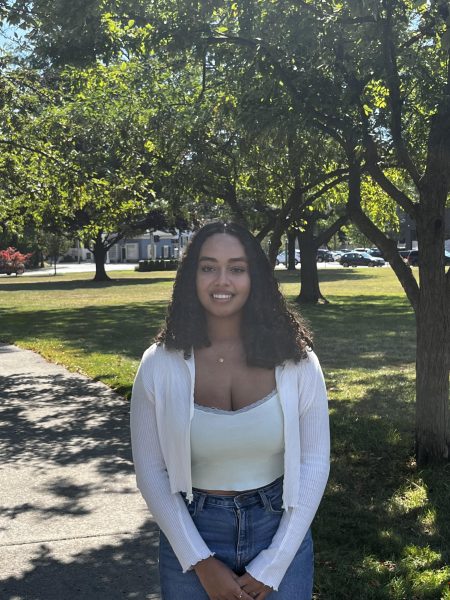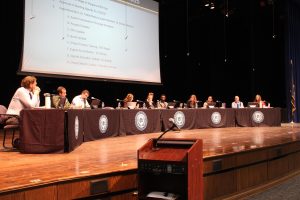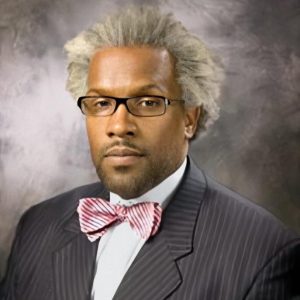A New Generation of Activists
October 6, 2020
Over the past few months, people around the world have been using media platforms to exercise their first amendment right, freedom of speech. Stories about police brutality, mass genocide, climate change, racism, transphobia and other global issues have become especially prevalent in the media. Events such as the murders of George Floyd and Breonna Taylor have sparked anger throughout the world, creating mass protests and petitions demanding justice. There is no surprise that high school students want to get involved as well.
In this day and age, one of the major ways teenagers can share their thoughts is on social media; something that over 3 billion people across the world use. Through self-expression on media and protests, students at South have been getting involved. Student Zosia Greer ‘23 told us on June 2 2020, the people of Grosse Pointe Woods held a peaceful protest to show solidarity with the Black Lives Matter movement. Behind peaceful events raising awareness and promoting justice, are teenagers.
“I went to March for Our Lives, Black Lives Matter protests, marches, all of that kind of thing,” Greer said. “I went to three in the past (couple of months) and I hope that they continue, because I think (they’re) really empowering.”
Another thing students at Grosse Pointe South do within school to express themselves is SEEDS (Students Empowering Education for a Diverse Society). SEEDS is a club attempting to create a more inclusive place for South students by having important discussions surrounding diversity at each meeting. According to SEEDS advisor Nicholas Bernbeck, it is expected for more students to join the club this year due to the increasing amount of students expressing their interest in social justice and other topics.
“In the meetings that we’ve had, students are having open discussions and allowing everybody who comes to the meeting a platform to express what they’re feeling, what they’re seeing, what they’re noticing (and) how it’s impacting them,” Bernbeck said.
In the last few months especially, students have been speaking out more– not only through clubs and organizations like SEEDS, but face-to-face with friends and family and on social media Katie Steiner ’23 said.
“I think expressing certain viewpoints is an extremely important way of educating and opening the eyes of fellow students that may have been unaware or misinformed,” Steiner said. “I also think that it’s important to use your voice and speak up in the face of injustice. Staying silent and turning the other way is a privilege not all of us at South have.”
Despite the increase in awareness surrounding social justice, “cancel culture” has become a big issue in performative activism according to Sam Tull ’23.
“I think that in some ways social justice issues have become a trend but for many this is genuine activism,” Tull said. “It’s complicated. I think “cancel culture” plays a role here. People with a lot of privilege may say they agree with certain values and ideas (like Black Lives Matter) on social media even if they genuinely do not. This is often called performative activism which is utilized to avoid getting ‘cancelled.” On the other hand, everyone has a different role in activism and not everyone is able to get out to protests or marches and sharing posts on social media is the best way for them to protest.”
Steiner mentioned though young people around the world have been striving to create a better place for themselves and future generations, some people wanting to be a part of the change might not be able to or might not know how to.
“Educating yourself and others is the first step to bringing change. This can come from posting informative threads on your social media, and engaging in conversations with your peers and community,” Steiner said. “Change begins with simple ideals and opinions and can be made through the spread of information, and most importantly, voting.”
Many also believe the future and ability to make a change lies in the hands of this generation. As we are seeing so many issues that have been around for centuries being brought back into the spotlight or new ones just arising, it is important now more than ever for students, the people of this generation, to speak up.
“I think our generation needs to be the generation to make a change, because I don’t know how much time there would be left,” Elena Simon ‘23 said. “For example with climate change if our generation didn’t make a difference, (because) some studies have been saying like twelve months, or twelve years (until the damages are irreversible), but yeah it’s sort of up to our generation to fix the problems that were caused by earlier generations.”
People are trying to change. Constantly trying to make a difference in the world. If that is by using their voices, donating, signing petitions or protesting. There will always be controversy that will arise from change, speaking up and the increased vocalization that is taking place.
“There will always be people in the world who do not want to listen or learn. There are people who will refuse to understand. They will argue and claim that people don’t deserve basic human rights based on their race or orientation,” Tull said. “For people with great privilege, equality feels like oppression. This will lead to anger and hate and debates over whether or not someone should have basic human rights. Controversy is unavoidable.”














































































